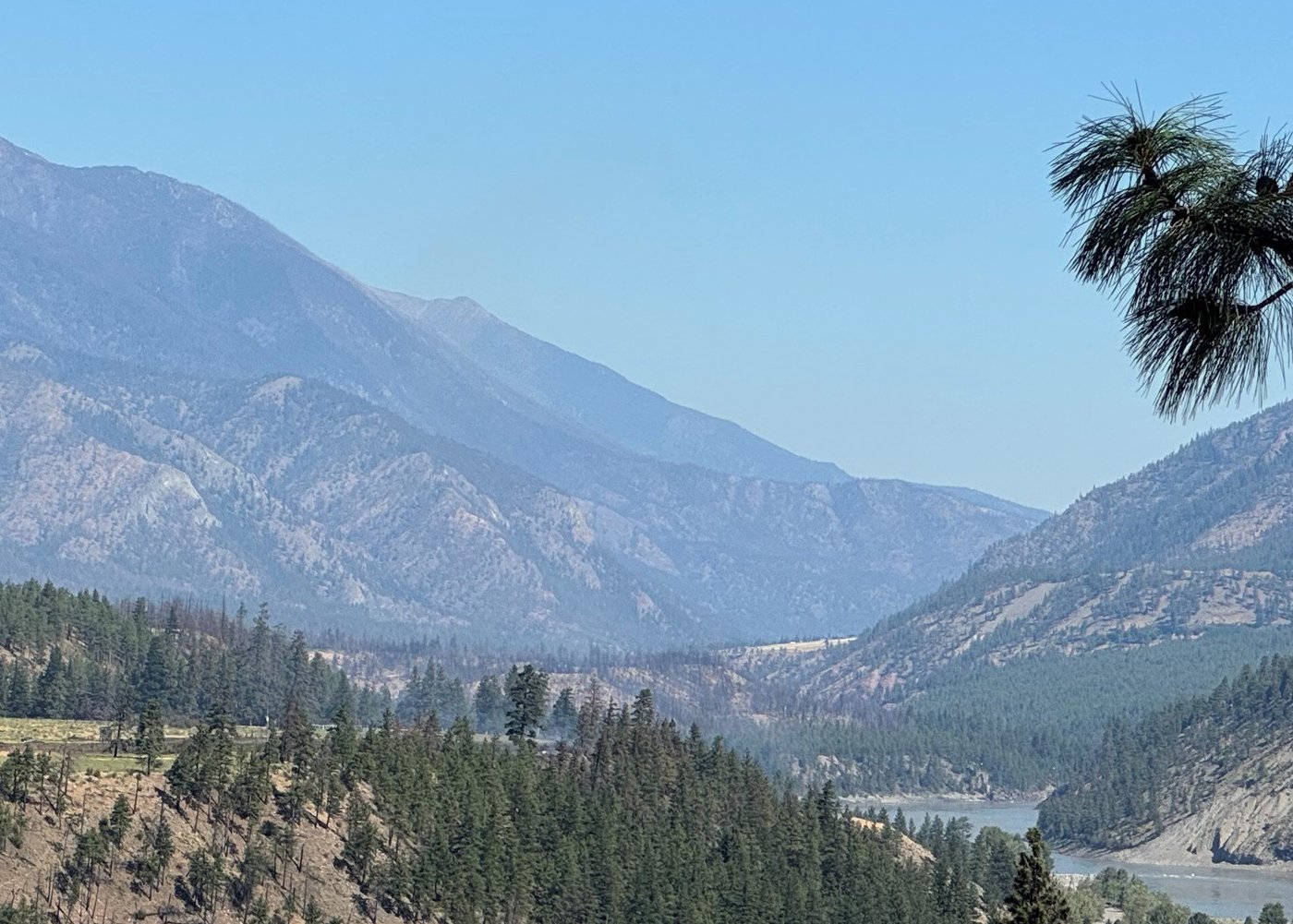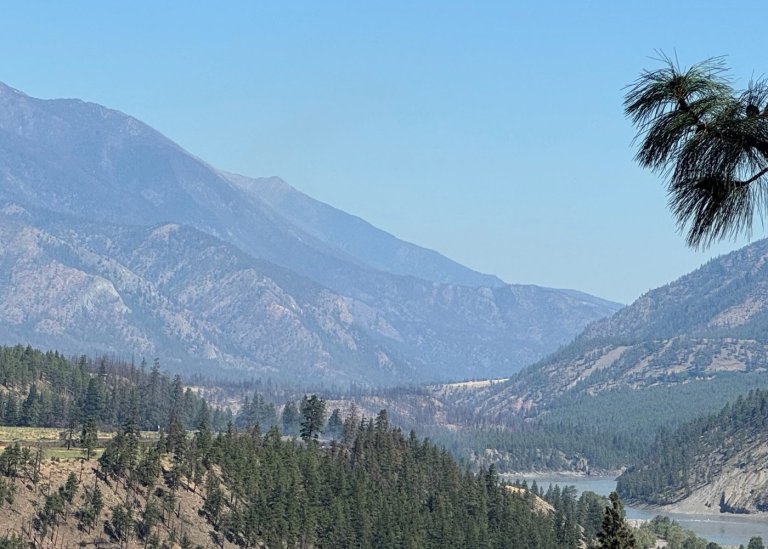
Fire again threatens Lytton, B.C., one of hundreds of blazes across Canada
This week marks the fourth anniversary of a deadly wildfire that destroyed the British Columbia village of Lytton, and the community is again under threat, with a nearby out-of-control wildfire setting off evacuation orders and alerts.
The Izman Creek fire burning north of Lytton prompted the Thompson-Nicola Regional District to issue an evacuation order for three properties and an evacuation alert for nine addresses along Highway 12 on Tuesday.
The Lytton First Nation also issued an evacuation alert for a large area encompassing several of its reserves on the east side of the Fraser River.
The BC Wildfire Service website shows the fire that was discovered Tuesday grew rapidly to about 25 hectares in size, forcing the closure of the highway for about 60 kilometres as firefighting crews respond by air and on the ground.
Human activity is the suspected cause of the blaze, the service said.
The blaze was among more than 480 wildfires burning across Canada on Wednesday, including nearly 80 active fires in British Columbia.
Alexandria Jones with the Canadian Interagency Forest Fire Centre said Canada had been at national preparedness level five, the highest level, since May 29.
The designation means wildland fire activity is significant across multiple jurisdictions and all Canadian firefighting resources are engaged in battling the blazes, while international partners are also being called on for help, she said.
Jones said the situation across the country is “severe” and there are still three months ahead in this fire season.
“What is really critical is the area that’s burned, how quickly these fires are spreading. And so this year we’re already at four million hectares.”
While that is about half of the figure for this time in 2023 — Canada’s worst fire season on record — this year’s number is much higher than early July in 2024, 2022, 2021 and 2020.
Just over one million hectares had burned at this time last year, Jones said, while just under 190,000 hectares had burned by early July 2022. At this point in 2021, 493,000 hectares had burned.
Jones said Canada has received assistance so far from firefighters from the United States, Australia, Mexico and Costa Rica.
In B.C., the Thompson-Nicola Regional District had earlier issued a local state of emergency for the Blue Sky Country region due to another nearby wildfire, which was burning out of control before being classified as “being held” as of Wednesday.
About 80 fires are burning in Yukon. The territorial government issued a statement on Wednesday saying crews had made progress containing “priority fires,” aided by cooler and wetter conditions.
The bulletin said the territory was lifting the level two fire restriction that had been issued on June 27 for the Southern Lakes, Tatchun, Northern Tutchone, Klondike and Kluane regions. Normal fire-season burning rules remain in effect.
The territory had earlier lifted an evacuation alert for the area surrounding Ethel Lake, a four-hour drive north of Whitehorse.
In Saskatchewan, the number of active wildfires has more than tripled in the last week. The province was reporting 64 active fires on Wednesday, with 20 uncontained. There were 20 active fires last week.
Marlo Pritchard with the Saskatchewan Public Safety Agency told reporters at a virtual news conference that residents of Bear Creek and La Plonge in the province’s northwest have been put under evacuation order.
He said the agency is supporting more than 200 people who have fled their homes. At the peak of wildfire activity last month, wildfires had forced more than 10,000 Saskatchewan residents out of their homes.
In Denare Beach, 650 kilometres northeast of Saskatoon, 218 homes burned down, more than half of the community. The province has said it provided one-time, $500 cheques to evacuees 18 and older at a cost of $5.1 million.
In Alberta, firefighting crews were battling more than 70 wildfires, with about 30 per cent of those blazes designated as out of control.
Statistics from the Canadian Interagency Forest Fire Centre show that about 180 of the fires active across the country on Wednesday were burning out of control.
Lytton, about 250 kilometres northeast of Vancouver, is still in the process of rebuilding from a devastating 2021 fire that tore through the community four years ago on Monday, killing two people and wiping out much of the village and part of the Lytton First Nation.
It was sparked on June 30, 2021, a day after Lytton set a Canadian temperature record of 49.6 C.
— With files by Brieanna Charlebois in Vancouver and Jeremy Simes in Regina
This report by The Canadian Press was first published July 2, 2025.
Join the Conversation!
Want to share your thoughts, add context, or connect with others in your community? Create a free account to comment on stories, ask questions, and join meaningful discussions on our new site.














Leave a Reply
You must be logged in to post a comment.